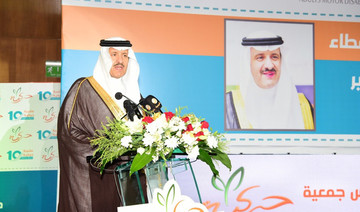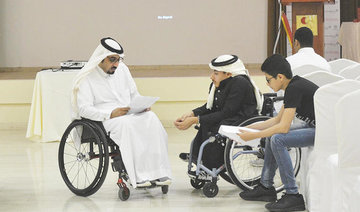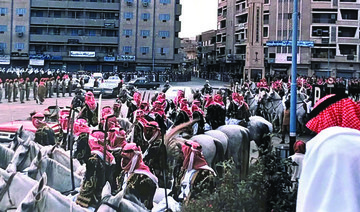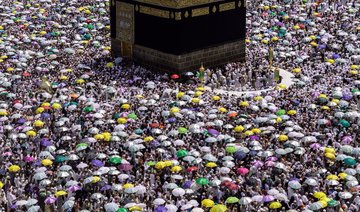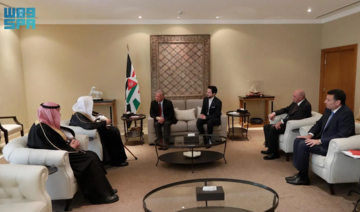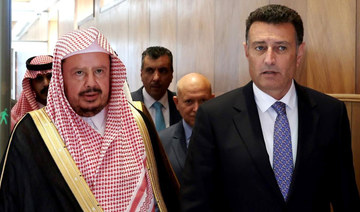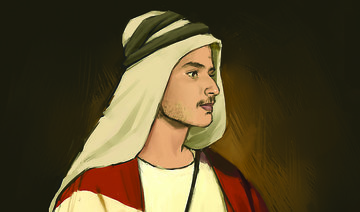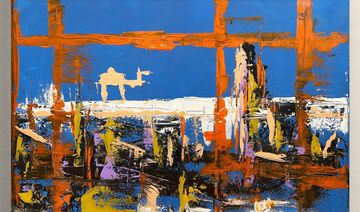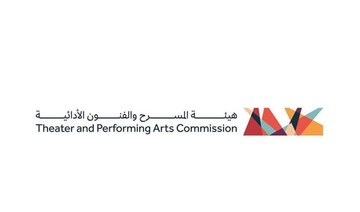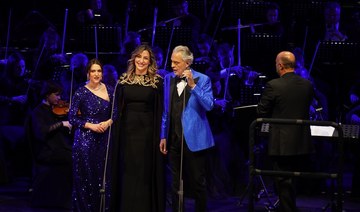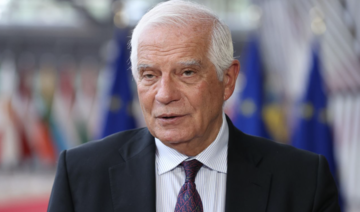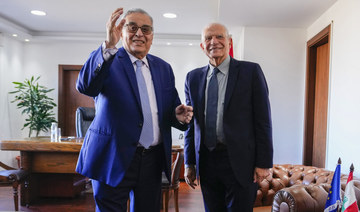JEDDAH: The King Salman Center for Disability Research (KSCDR) joined a Saudi delegation headed by Dr. Tamader bin Youssef Al-Rammah, deputy minister of labor and social development, to an international conference on rights for the disabled held at the UN headquarters in New York.
KSCDR’s participation in the 11th Conference of States Parties to the Convention on the Rights of Persons with Disabilities is part of its role in highlighting the empowerment and integration of people with disabilities through research in collaboration with government and private sectors.
Dr. Ali bin Nasser Al-Odaib, KSCDR’s director of research and training, said the center had also taken part in scientific sessions to empower people with disabilities and provide them with health, education, training and rehabilitation services.
KSCDR’s efforts included the introduction of the Universal Accessibility Program aimed at creating a barrier-free environment and helping persons with disabilities communicate and use modern facilities and technologies.
Al-Odaib said the center’s delegation reviewed the program of early detection of disability, including the program of early detection for newborn babies to alleviate disability rates.
A number of research projects implemented by the King Salman Center were reviewed, such as the National Health and Life Stress Program, the general education curricula targeting students with disabilities project, and the genetic diagnosis of diseases leading to disabilities such as blindness and hearing loss.
KSCDR training and education were also presented, including a computer program that allows people with disabilities and learning difficulties to receive Ministry of Education training.
The delegation discussed the efforts of the King Salman International Award for Disability Research in its three branches aiming to support scientific research and encourage researchers to tackle the field of disabilities. It also highlighted the center’s efforts in organizing international conferences about disability and rehabilitation since 1992, which help raise the scientific and practical standards of workers in this field.
Saudi delegation participates in global forum on disabled rights at UN
Saudi delegation participates in global forum on disabled rights at UN
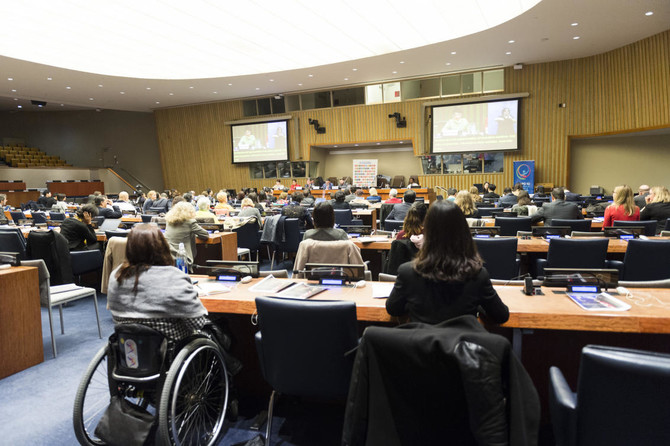
- KSCDR’s participation in the 11th Conference of States Parties to the Convention on the Rights of Persons with Disabilities is part of its role in highlighting the empowerment and integration of people with disabilities.
- The center's efforts included the introduction of the Universal Accessibility Program aimed at creating a barrier-free environment and helping persons with disabilities communicate and use modern facilities and technologies.
Rare cameras reveal history of Saudi media at Hasma Museum in Tabuk
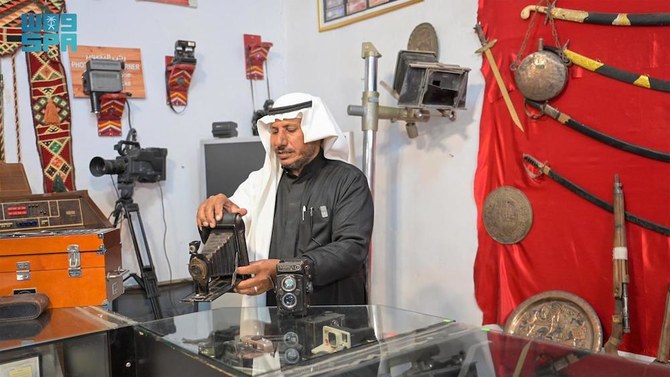
RIYADH: A fine collection of rare cameras, print and audiovisual artifacts at the Hasma Museum in Tabuk offers visitors a unique experience.
Among items in the collection are vintage treasures such as old box cameras, 16 mm to 35 mm cinema cameras, underwater cameras, and flash cameras from 100 years ago.
The museum also has a display of historical audio and video equipment, while visitors can explore the earliest editions of local and other Arab newspapers.
Odeh Al-Atwi, who is from the Tabuk region, created the museum near the Hasma desert to offer a memorable experience to visitors.
Antique collector and museum owner Al-Atwi, telling the Saudi Press Agency of his journey to preserve these media artifacts in the museum, said: “It’s been a profound experience and a significant milestone in my life. The media plays a pivotal role in shaping social consciousness and documenting newsworthy events, particularly those that reverberate through the media landscape.”
Al-Atwi meticulously curated a remarkable collection of tools at his museum, providing visitors a captivating journey through the history of classic cameras, broadcast equipment, satellite linking machines and an array of visual and audio devices.
Each artifact, he said, acts as a window into the evolution of media technologies.
He expressed his gratitude to the Museum Commission for their encouragement in establishing the museum and their efforts in organizing the museum sector. Al-Atwi also acknowledged the support from the Saudi leadership, emphasizing their commitment to initiatives that benefit citizens and the nation.
The Ministry of Culture facilitates the endeavors of private museum owners by licensing their establishments through the Abdea platform. This initiative is an enabler for those in the museum sector, supporting its development and contributing to the realization of the cultural goals outlined in the Saudi Vision 2030.
Saudi Shoura Council speaker holds meetings during official trip to Jordan
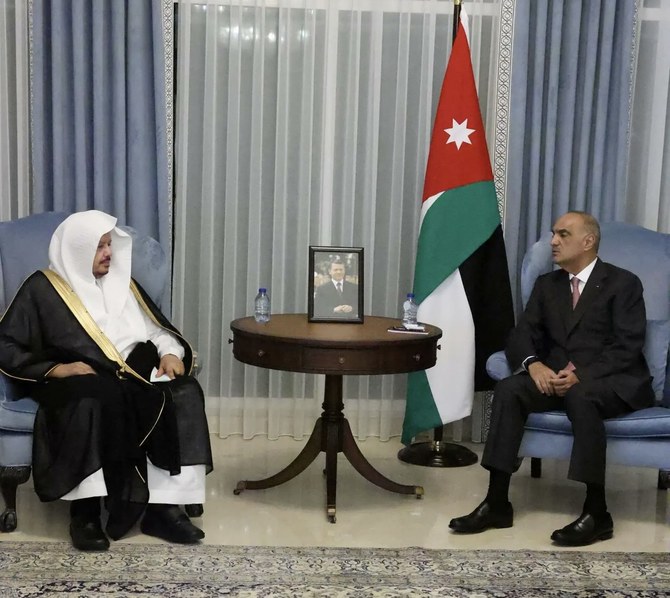
- Gatherings attended by several officials from the 2 sides
RIYADH: The Speaker of the Saudi Shoura Council Sheikh Abdullah Al-Sheikh met Jordanian Prime Minister Bisher Khasawneh on Wednesday as part of his official visit to Jordan, the Saudi Press Agency reported.
The discussion emphasized the strong and deep-seated relations between Saudi Arabia and Jordan, highlighting their extensive coordination and cooperation across various sectors.
Both officials explored ways to enhance bilateral ties, with a particular focus on strengthening parliamentary relations.
Al-Sheikh also held discussions with Faisal Akef Al-Fayez, president of the Jordanian Senate, on the same day.
He highlighted Saudi Arabia’s rapid economic growth and development, attributing this progress to the leadership of the Kingdom.
Al-Sheikh expressed gratitude for Jordan’s unwavering support and spoke of the consistent backing the Kingdom has provided to Jordan.
The meeting also focused on ongoing cooperative efforts between the Shoura Council and the Jordanian Senate, along with discussions on various other subjects.
Both meetings were attended by several officials from the two sides.
Saudi artist embraces the unconventional with anti-aesthetic artworks
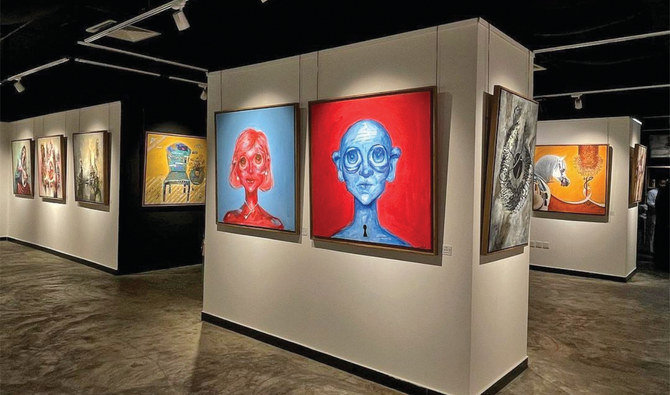
RIYADH: In a world fixated on beauty and aesthetic perfection, Saudi artist Asrar Al-Qarni is boldly producing anti-aesthetic and unsettling art.
Through her work, the 33-year-old challenges traditional notions of beauty and protests conformity. She compels viewers to confront uncomfortable truths and explore darker aspects of society.
This unconventional approach to art can be seen as a romantic rebellion against society’s constraints, as well as a celebration of individuality and freedom of expression.
Al-Qarni told Arab News that anti-aesthetic art encourages people to look beyond the surface and find beauty in the unexpected and the unconventional. It seeks to disrupt the status quo and provoke thought and discussion about the nature of art itself: “Instead of being visually appealing and comforting, anti-aestheticism prioritizes evoking emotions and disturbing expression within the artwork,” the artist said.
This can lead to anti-aesthetic works being labeled ugly, jarring, or anti-art by those who prefer more aesthetically focused works.
By highlighting discord and dissonance in her paintings, Al-Qarni, a self-taught artist, creates a unique and thought-provoking experience for those who encounter her work. “Incorporating elements of chaos, ugliness and discomfort forces viewers to confront their preconceived notions about what art should be,” she added.
Al-Qarni became interested in anti-aesthetic art because of its raw human expression and beauty hidden by imperfections.
She uses bold colors and abstract shapes to create pieces that challenge viewers’ preconceptions and provoke a strong emotional response.
“I use various materials for my art, including mixed media, oil paint, acrylic paint and watercolor. My choice of materials depends on the specific technique or effect I want to achieve in my artwork,” Al-Qarni said.
By breaking free from the constraints of conventional beauty, the artist is pushing boundaries and inspiring others to think outside the box.
Al-Qarni said she cultivated her style through dedicated practice. She started copying and sketching cartoons from her favorite television shows as a child. “As I got older, I got into realistic portrait painting, trying to capture the world around me, but I soon realized that realism did not allow me to express my emotions deeply enough,” she added.
The Saudi artist eventually resorted to a more liberated method, allowing her to follow her instincts and let her brush strokes guide her: “When I hold the brush against the canvas, it becomes a way to quieten the noise of life and connect with my inner self, providing a source of relaxation and tranquility.”
The artist maintains a multi-purpose space where she paints, serving as both a studio and a cozy personal area.
“It is where I sleep, read and spend most of my time. Waking up surrounded by the creative mess of my art provides me with a sense of passion and inspiration to continue my artistic journey each day.”
Ten years ago, Al-Qarni decided to pursue art professionally, and she has not looked back since. Her work has been featured in galleries and exhibitions across Saudi Arabia, earning her recognition and acclaim from critics and audiences.
Al-Qarni’s first showing was in 2016 in Jeddah with Behance, the world’s largest network for showcasing and discovering creative work.
“Facing the audience, I received both compliments and critiques. The experience was helpful and encouraging, inspiring me to create more and improve my art,” she said.
She has taken part in several art exhibitions, such as the Misk Art Institute in 2019, which provides a platform for creative individuals to influence present-day discussions.
Al-Qarni also showcased her work at Grey Art Gallery in Alkhobar, and Zawaya Art Gallery and Sensation Art Gallery in Jeddah.
The artist gives each painting a title that reflects the overarching emotion or story behind the artwork. The title can be inspired by a novel, a song, or a personal experience related to the painting.
“How someone perceives and feels about a painting can vary depending on the person looking at it,” she added. “We all bring our own thoughts and experiences, which adds to the richness and meaning of any artist’s work.”
To aspiring artists who might be intimidated to share their artwork and innermost emotions with an audience, Al-Qarni preaches that the world needs art.
“Embrace the opportunity for growth and connect with other artists through feedback and experiences, and remember that every artist starts somewhere, and sharing your work is a step toward achieving your goals.”
Stage is set for Saudi Arabia’s first Arabic grand opera
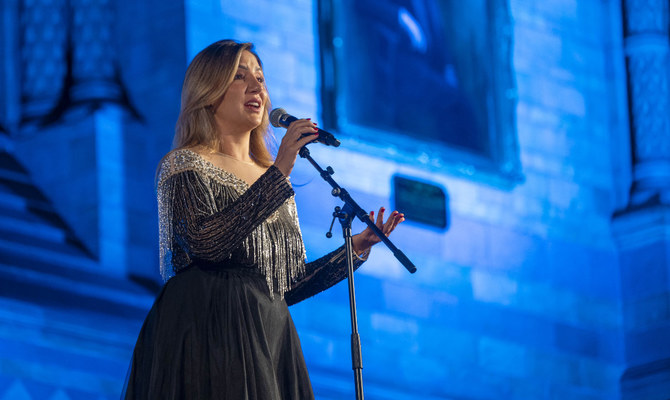
- ‘Zarqa Al-Yamama’ aims to bring Saudi heritage to life and lead the way into a new cultural era in the Kingdom
- Saudi singers Sawsan Al-Bahiti, Khayran Al-Zahrani and Reemaz Oqbi take on 3 key roles in the opera
RIYADH: With just a week to go, the stage is set for the eagerly anticipated first performance of “Zarqa Al-Yamama,” which organizers describe as the first grand Saudi opera in Arabic, at King Fahd Cultural Center in Riyadh on April 25.
The libretto will be sung in Arabic, which is rare in opera as the vast majority of works are performed in European languages. As such, the Kingdom’s Theater and Performing Arts Commission said the event, which takes place under the patronage of Minister of Culture Prince Badr bin Abdullah bin Farhan, marks a turning point in an increasingly vibrant Saudi cultural scene, given the high artistic value of opera and the interest of connoisseurs and audiences around the world in the art form.
“Zarqa Al-Yamama” is based on well-known sung poems and music inspired by the operatic tradition, together with elements of Saudi music. It tells the story of the legendary figure Zarqa Al-Yamama, who lived in the Al-Yamama region of Najd during the pre-Islamic era and is caught up in a dispute between her tribe and another that ends in tragedy.
The producers describe the opera as a poignant tragedy with breathtaking suspense, brought to life in a state-of-the-art theatrical production filled with sweeping orchestral movements and mesmerizing choral performances that deliver a unique cultural experience.
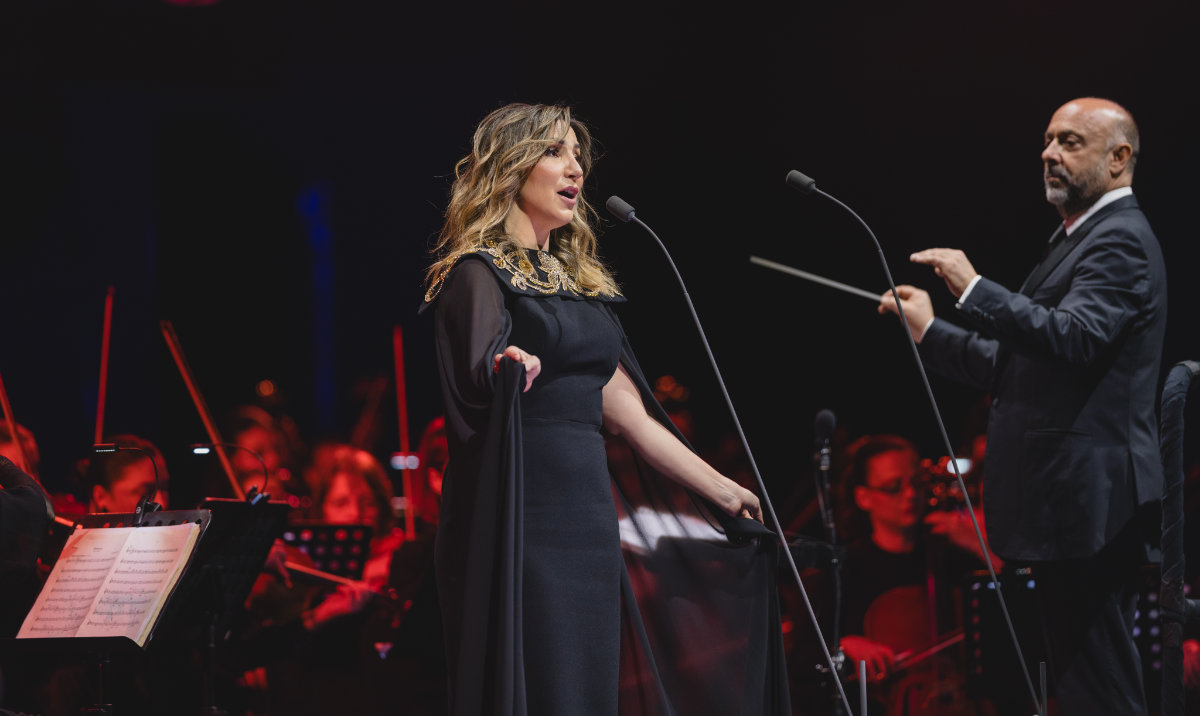
Sultan Al-Bazie, the CEO of the Theater and Performing Arts Commission, said the opera embodies well-established elements of Saudi heritage and presents a well-known story within a contemporary framework that reflects modern artistic trends and audience expectations.
It is a collaborative project featuring Saudi and international artists. Saudi poet Saleh Zamanan, who has received several local and international awards for his poetry and plays, wrote the words, inspired by the historical story of Zarqa and adding his own literary stamp.
Saudi artists Sawsan Al-Bahiti, Khayran Al-Zahrani and Reemaz Oqbi take on three key roles in the opera, which is a sign of the progress in the development of musical entertainment in the Kingdom.
“I will be performing the role of the bridesmaid, which is part of a major scene in the opera where the story takes a major turn to more thrilling events,” Al-Bahiti told Arab News.
Considered the first Saudi opera singer, she has been leading the way in the development of the Saudi opera scene and “Zarqa Al-Yamama” provides the latest showcase for her incredible vocal talent. She said the production is contemporary and innovative, and demonstrates a rich complexity that will captivate the audience.
“From the day I started training as an opera singer in 2008, I dreamed of an original Saudi opera production sung in Arabic,” said Al-Bahiti. “This day has finally come, and arrived sooner than I expected, which makes me even happier.”
Amid the rapid development and evolution of all forms of entertainment in Saudi Arabia in recent years, “Zarqa Al-Yamama” represents a significant step forward for opera in the Kingdom, and Al-Bahiti serves as a shining example of the growing opportunities as the art form continues to evolve and grow.
“Zarqa Al-Yamama” will run from April 25 until May 4, with 10 performances scheduled.
Saudi FM receives phone call from EU foreign policy chief
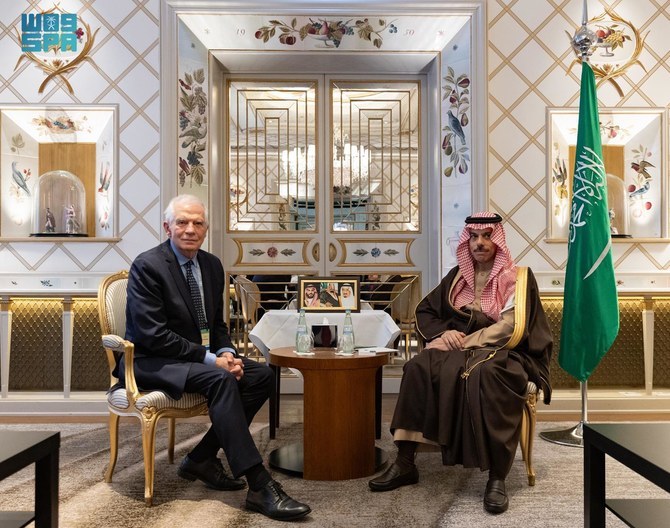
- Officials discussed Gaza war
RIYADH: Saudi Foreign Minister Prince Faisal bin Farhan received a phone call on Wednesday from European Union foreign policy chief Josep Borrell, Saudi Press Agency reported.
The officials discussed the latest developments in the Gaza Strip and its surrounding areas, and the international efforts being made to end the war.
Earlier in February, Prince Faisal and Borrell held similar discussions on the sidelines of the Munich Security Conference.


